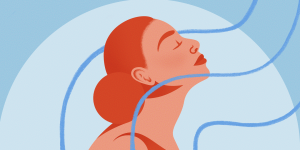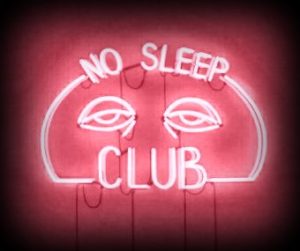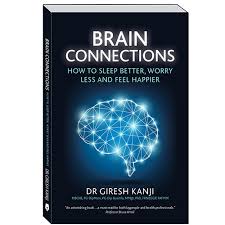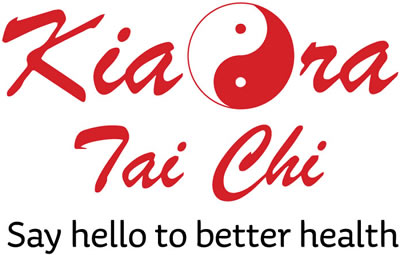by Jocelyn Watkin | May 6, 2025 | Information |

Dreaming of flying towards the sun this winter?
Feeling all shivery in the mornings? What about when curled up under two duvets at night, dreaming of flying north or to the Pacific Islands to follow the sun?
Before you book that one-way ticket, here’s a cosy secret: you can turn up your inner heat right here at home — no passport required.
As the days grow shorter and the chill sets in, many of us start hunting for ways to stay warm without simply cranking up the heater or huddling under several blankets all winter.
Tai chi and qigong might not be the first things that come to mind when you think of keeping warm — but they should be.
So, can tai chi really help quell the quivery shivers of winter?
Yes, absolutely.
Tai chi and qigong are gentle forms of exercise, which means they’ll warm your body just as any physical movement does. But they go far beyond that.
The magic lies in the how. Slow, flowing movements combined with deep, mindful breathing do more than just get your blood moving — they improve your circulation and help your body absorb oxygen more efficiently.
Unlike high-intensity workouts that burn through your oxygen and leave you gasping, tai chi and qigong cultivate a quiet, lasting energy that lingers long after your practice ends.
That’s why so many practitioners describe a subtle, comforting warmth spreading through their bodies — not just during the session, but for hours afterward.
In the world of Traditional Chinese Medicine, this warmth has an even deeper explanation. Tai chi and qigong help to cultivate your qi — your life force, your mauri — which is believed to support your body’s natural defenses and resilience. A strong flow of qi is said to help you withstand not just winter’s chill, but also many seasonal bugs and fatigue.
And it’s not just ancient wisdom saying this. Modern research backs it up, too. Studies show tai chi and qigong can positively influence immune system functioning and reduce inflammation — helping you feel stronger and more energised during the colder months.
Explore the science here: https://www.kiaorataichi.nz/tai-chi-and-qigong-can-boost-immunity/
So next time you reach for another pair of socks or wrap yourself in a blanket, consider this: tai chi and qigong could be your warmest allies this winter.
I welcome new beginners at my tai chi classes in Clendon, Manurewa, on Wednesday evenings, 6.30 – 7.15pm. Your first class is free. Find out more: https://www.kiaorataichi.nz/classes/
The photo above of me practising tai chi in the glow of a huge, close-up photo of the sun was taken at the ‘Astronomy Photographer of the Year’ exhibition, Te Whare Taonga o Waikato Museum & Gallery, in Hamilton. https://tewharetaonga.nz/
by Jocelyn Watkin | Dec 12, 2021 | Information |
 Latest evidence suggests that both tai chi and qigong have a positive impact on immune system functioning and inflammatory responses.
Latest evidence suggests that both tai chi and qigong have a positive impact on immune system functioning and inflammatory responses.
The worldwide Covid-19 pandemic has driven more research into medical interventions and options that improve immunity and recovery.
The quest has been wide-ranging and has included the effect that tai chi and qigong have on our immune responses.
During 2020, a group of medical specialists and researchers from hospitals in Sydney and Seoul and also from the Harvard, Stamford and Sydney Medical Schools collaborated on a systematic review and meta-analysis of 19 full-text randomized controlled trials (RCTs) for tai chi and qigong. These 19 RCTs involved 1,686 participants in total.
The conclusion: Current evidence indicates that practising tai chi and qigong has a positive impact on immune system functioning and inflammatory responses. Read more: https://www.mdpi.com/2305-6320/7/7/39/htm
Please bear in mind that these RCTs required people to practice tai chi or qigong at least twice per week and for at least several weeks. The positive effect on your health and wellbeing from tai chi and qigong can’t happen if you only try it once or twice and then stop. You need to practice regularly. There are very few things in this world that work with just one dose.
Please also note that while the review confirmed tai chi and qigong have a positive impact on immune system functioning and inflammatory responses, it did NOT prove that these activities prevent you from catching Covid-19 or other diseases.
Additional activities that can help you to boost your immunity levels are:
- Maintaining a healthy diet
- Getting enough sleep
- Keeping hydrated, especially in summer and also when exercising
- Minimising stress
If you have any concerns about Covid-19 or other health matters, please talk to your doctor and other fully-qualified medical professionals.
by Jocelyn Watkin | Sep 17, 2020 | Information |
 Breathing – we all do it automatically: approximately 18 times per minute, 1,080 times per hour and nearly 26,000 times in a 24-hour day. You would have thought we’d got it down to a fine art?
Breathing – we all do it automatically: approximately 18 times per minute, 1,080 times per hour and nearly 26,000 times in a 24-hour day. You would have thought we’d got it down to a fine art?
But, what if I told you that most of us could do this breathing thing a lot better? And, by better I mean having more more energy, less anxiety, better sleep, less stress, a better posture with less back ache, and that it was a way you could quickly calm your mind when it is revved up. Of course, you don’t have to do this type of breathing for all of those 26,000 breaths. Instead, you can try it for just for a minute or two and for 2-3 times per day – it could make a huge difference in your life and health.
Tai chi is an ancient, Chinese exercise programme and martial art that involves a series of movements performed in a mindful, focussed manner and accompanied by deep breathing.
You don’t have to know tai chi to learn tai chi breathing. I can show you how to do this so you can breathe your way to better health. You will be able do this anywhere, anytime at home, at work and even on a bus or train.
Let me show you how in this short, 3-minute video.
What happens when we don’t breathe properly? Journalist, James Nestor, and a friend decided to try it for just two weeks. He said on Radio NZ National this week, “We knew it wasn’t going to be fun, but we didn’t know it was going to be a bad as it was. Within a few hours my blood pressure shot up about 20 points. That night I start snoring and I had not snored before.”
Check out the RadioNZ broadcast with James Nestor in this link.
I’ve also written about WHY tai chi breathing is so good for you and how it can help you to bust stress in just a few minutes per day. Click here to find out.
by Jocelyn Watkin | Aug 26, 2019 | Information |
 It’s a night club, but there’s no dancing or happiness. The ‘No Sleep Club’ is no fun at all. It feels like you are stuck at the Hotel California – “You can check out any time you like, but you can never leave”. [Lyrics by The Eagles, 1977]
It’s a night club, but there’s no dancing or happiness. The ‘No Sleep Club’ is no fun at all. It feels like you are stuck at the Hotel California – “You can check out any time you like, but you can never leave”. [Lyrics by The Eagles, 1977]
However, Dr Giresh Kanji has discovered five keys, any of which will open the door to the escape route.
After decades of research, literature searches and clinical trials, Dr Kanji identified the following activities (the keys) to escape insomnia. These also help with depression and anxiety, which are often closely related to insomnia:
- Tai chi
- Meditative breathing
- Exercise that is at least slightly rigorous
- Sauna
- Yoga
There were no surprises for me to discover that tai chi is in the Top 5. Nearly all of my students (and me) comment on how much better they sleep after a tai chi class.
Note: not one of the five activities includes medication or hospital visits.
You don’t have to do all of the activities listed above, just pick one and get started. Fortunately, with tai chi you can win the trifecta as the first three activities listed above are packaged together when you learn tai chi. If you’re doing tai chi in our humid January and February weather, you might even get something close to sauna conditions, too. 🙂 Click here to try a special tai chi breathing exercise with me. It takes less than a minute to learn.
Find out more about why and how these five activities [habits] work by watching this TV interview with Dr Kanji. It is just under 5 minutes duration. Or you can clilck on this link: https://youtu.be/F8GIgJ3fM7M
 Dr Kanji has written a book called: “Brain Connections: How to sleep better, worry less and feel happier” where he explores the role of childhood trauma, stress, and the links between stress-related symptoms and fatigue, concentration and dementia. He outlines the five habits [activities] that reduce the activity of the stress brain and improve insomnia, anxiety and depression. Click here to learn more about this book or to buy it.
Dr Kanji has written a book called: “Brain Connections: How to sleep better, worry less and feel happier” where he explores the role of childhood trauma, stress, and the links between stress-related symptoms and fatigue, concentration and dementia. He outlines the five habits [activities] that reduce the activity of the stress brain and improve insomnia, anxiety and depression. Click here to learn more about this book or to buy it.
Dr Kanji is a New Zealander and a graduate of the Otago Medical School. His is a musculoskeletal pain specialist and researcher. He explored the sensory amplification of pain in his PhD including the role of the human stress response.

Dr Giresh Kanji
He is an honorary Senior Lecturer at Auckland University, the chairperson of the NZ Pain Foundation and editor of Australasian Musculoskeletal Medicine. To find out more about him: https://gireshkanji.com/dr-giresh-kanji
Find out more:
by Jocelyn Watkin | May 17, 2019 | Information |
 Your brain while meditating – calm, clear and confident. Your brain doing tai chi – calm, clear, and confident. This is no coincidence. Even my newer students notice how the more experienced students ‘get in the zone’ when doing tai chi. They want that, too. Don’t we all??
Your brain while meditating – calm, clear and confident. Your brain doing tai chi – calm, clear, and confident. This is no coincidence. Even my newer students notice how the more experienced students ‘get in the zone’ when doing tai chi. They want that, too. Don’t we all??
Ah, mawhitiwhiti iti (little grasshoppers), the key is in the breathing. With tai chi you learn how to match your breath with your movements.
I’ve dug out a great article to help you understand how it works:
“… Both tai chi and mindfulness meditation focus your attention on the breath. That single focus may help your brain make lasting changes that impact the way you see (and cope) with things.
Research has found that both tai chi and meditation have a powerful effect on the mind, cultivating a stillness that serves to increase focus, reduce stress, and boost cognitive skills.” Read on
Wait there’s more! This research has also shown that tai chi can train your brain and improve your life in three ways. This is because tai chi:
- grows the size of your brain, even when you are no longer a child (or even young)
- improves your memory and ability to stay focussed
- shakes off stress.
Keep practising and you too will enter the zone. Click here to discover more about this research into tai chi.


 Latest evidence suggests that both tai chi and qigong have a positive impact on immune system functioning and inflammatory responses.
Latest evidence suggests that both tai chi and qigong have a positive impact on immune system functioning and inflammatory responses. Breathing – we all do it automatically: approximately 18 times per minute, 1,080 times per hour and nearly 26,000 times in a 24-hour day. You would have thought we’d got it down to a fine art?
Breathing – we all do it automatically: approximately 18 times per minute, 1,080 times per hour and nearly 26,000 times in a 24-hour day. You would have thought we’d got it down to a fine art? It’s a night club, but there’s no dancing or happiness. The ‘No Sleep Club’ is no fun at all. It feels like you are stuck at the
It’s a night club, but there’s no dancing or happiness. The ‘No Sleep Club’ is no fun at all. It feels like you are stuck at the  Dr Kanji has written a book called:
Dr Kanji has written a book called: 
 Your brain while meditating – calm, clear and confident. Your brain doing tai chi – calm, clear, and confident. This is no coincidence. Even my newer students notice how the more experienced students ‘get in the zone’ when doing tai chi. They want that, too. Don’t we all??
Your brain while meditating – calm, clear and confident. Your brain doing tai chi – calm, clear, and confident. This is no coincidence. Even my newer students notice how the more experienced students ‘get in the zone’ when doing tai chi. They want that, too. Don’t we all??